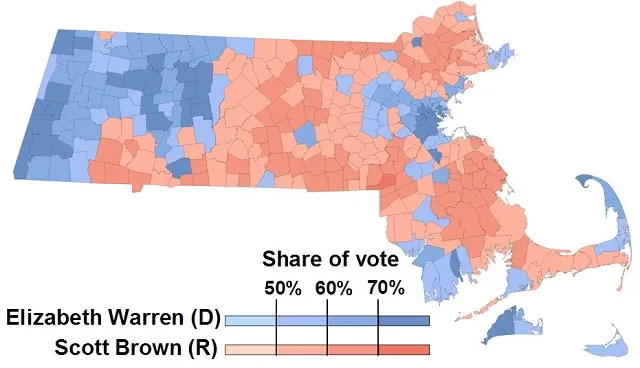Polls are back in the news, with the release of four public polls and an internal Gabriel Gomez campaign poll in the June 25 Massachusetts special Senate election to replace John Kerry. 3 of the 4 public polls show Ed Markey with a distinct but still surmountable lead, an average of 6 points; the fourth shows him up by 17 and looks like an outlier, adding 2.7 points by itself to Markey’s lead in the RCP average. The Gomez campaign’s internal poll shows Markey by 3; if you use the general rule of thumb that a campaign conducts multiple internal polls and will only release its most favorable internal, that’s consistent with this currently being a 5-7 point race. Which is not a bad place for a Republican to be in Massachusetts five weeks before the election – it gives Gomez a puncher’s chance in a special election – although you’d clearly still put better than 50/50 odds on Markey.
The closest public poll so far was put out by progressive Democratic pollsters PPP; its first poll of the race has Markey up by 4, 44-40. Let’s take a look at how PPP polled the last Senate race in Massachusetts, the 2012 race between Scott Brown and Elizabeth Warren, which Warren ultimately won 54-46. That race may be less predictive of this one than the 2010 special election between Brown and Martha Coakley (in which PPP was one of the more reliable pollsters), but it’s interesting as an exercise in examining how PPP samples the electorate.
Continue reading PPP on the Brown-Warren Senate Race: A Polling Post-Mortem

